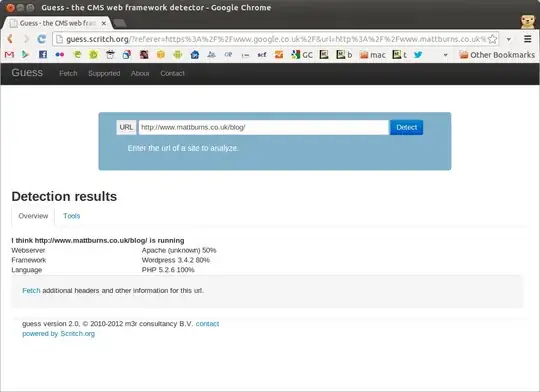I'm redesigning the website for my academic library and am examining other sites to determine to identify the technologies used. Things like:
- Web frameworks
- Javascript frameworks
- Server-side technology
- Content management system
Now I've had some real success in Firefox using plugins like Wappalyzer, Firebug, and the DOM Inspector. But some sites just don't display any of the info. I'm looking for using these tools, especially it seems it an enterprise-level CMS is being used.
Does anyone know of any other tools to detect this kind of data? Also with Firebug & the DOM Inspector, there is a lot of info. displayed and I wondered if there was a way to derive the presence of server-side technologies, CMS's, etc. within certain elements of a web page?
Also, if this question is more relevant to another Stack Exchange site, please let me know and I'll post it there instead.
Much thanks,
Jason
